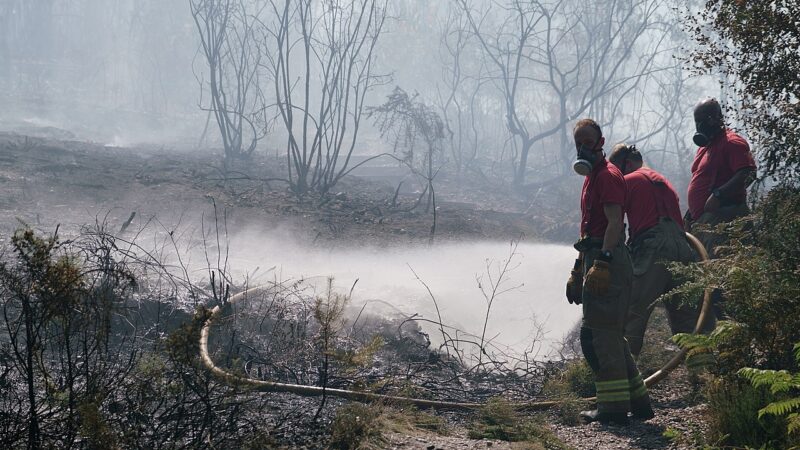It takes an advanced level of denial to dismiss the climate crisis during a record-shattering heatwave, but some rightwing British media gave it their best shot.
Talk Radio host Julia Hartley-Brewer invited listeners to shrug off not just a vast body of scientific research but the evidence of their own sweat glands in a manufactured clash with climate campaigner Leo Murray. (Don’t read the comments, for your sanity.)
The Daily Mail newspaper mocked “snowflake Britain” on its front page one day and reported a “nightmare of wildfires” the next, without any sign of self-reflection.
Those attitudes are out of step with a clear majority of people, in the UK and globally, who are worried about climate change and want to see more action to tackle it.
Unfortunately, the task of choosing the UK’s next prime minister falls to a group of people that is likely to get its news from such sources: Conservative Party members.
As the field narrowed to two contenders this week, Rishi Sunak and Liz Truss, they affirmed their commitment to the UK’s net zero emissions target but had little to say on how to deliver.
This week’s stories
- Between a wolf and its food: as one deep sea miner flops, others eye the prize
- Massachusetts set to enable citizens to give climate finance to vulnerable nations
- Chinese court rules bitcoin mining harms the climate
- Bioenergy is a bigger deal than you think – which is why the details matter
- In Rishi Sunak and Liz Truss, UK’s two PM contenders have poor climate records
- UK government touts ‘guilt-free flying’ on country’s hottest day on record
- Germany promotes insurance-based ‘global shield’ for climate victims
Sunak’s stinginess on climate action as finance minister and Truss’s links to climate denialist think tanks do not inspire confidence. Truss, the frontrunner in polls of the party faithful, is running on a platform of aggressive tax cuts, which doesn’t bode well for international climate finance either.
Net zero is a legally binding target, so there will be institutional pressure to narrow the policy gap, whoever wins this contest. A high court judge has ordered the government to show how its emissions cuts add up by next March.
The sums were not rigorous for the one climate policy that landed on the UK’s hottest day ever, a “jet zero” strategy. It ruled out curbing demand for air travel and bet the house on unproven future technologies, allowing aviation emissions in its highest ambition scenario to remain above 1990 levels in 2050. That’s not zero.
It is more than a domestic issue. Many countries have emulated the UK model of climate framework legislation enforced by an independent watchdog, but does it have teeth? The two years before the next general election will put that to the test.
“It’s like getting between the wolf and its food… One company may go down but another will come back.”
Catherine Coumans, MiningWatch Canada, on the race for minerals in the deep ocean
